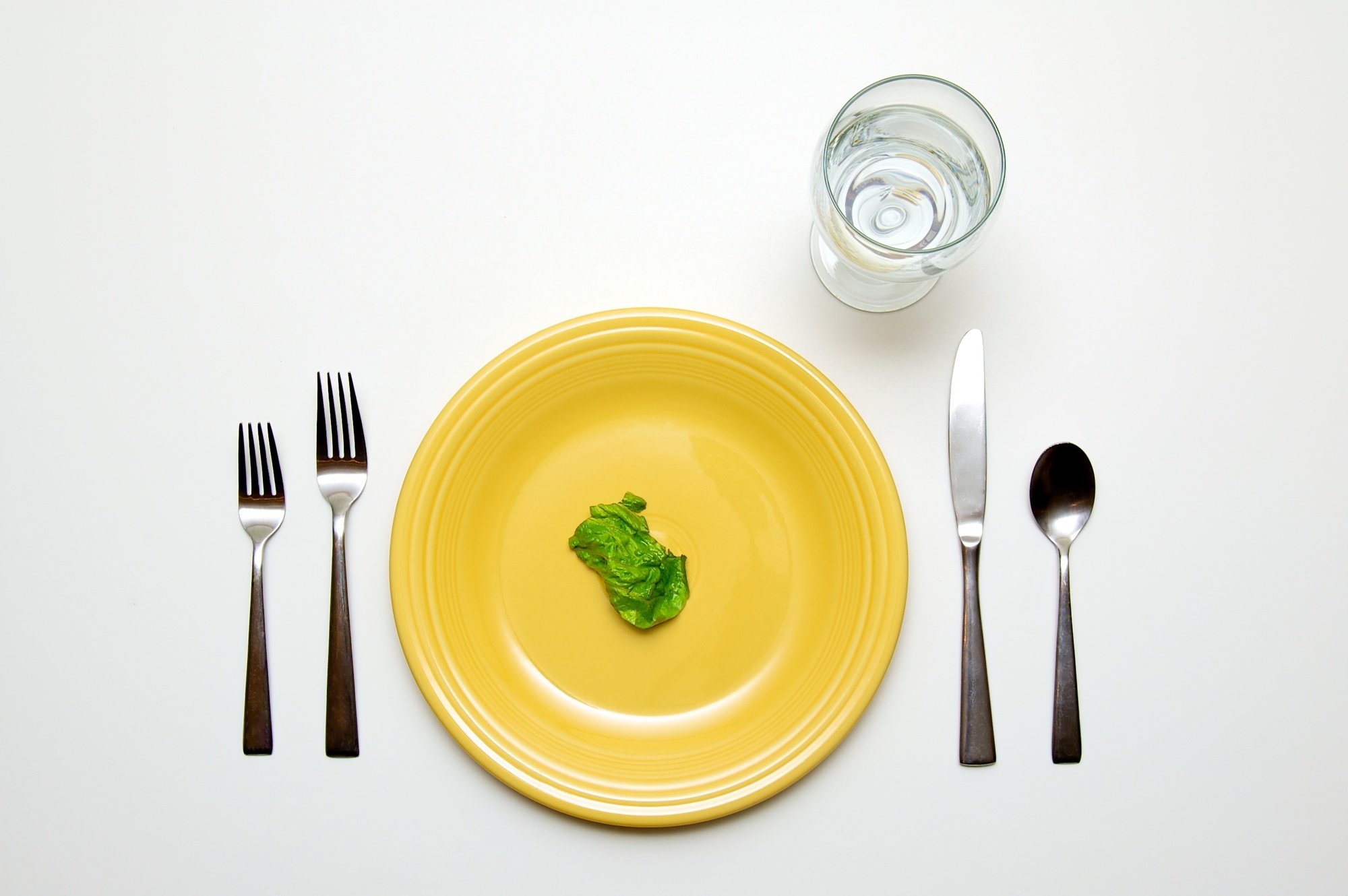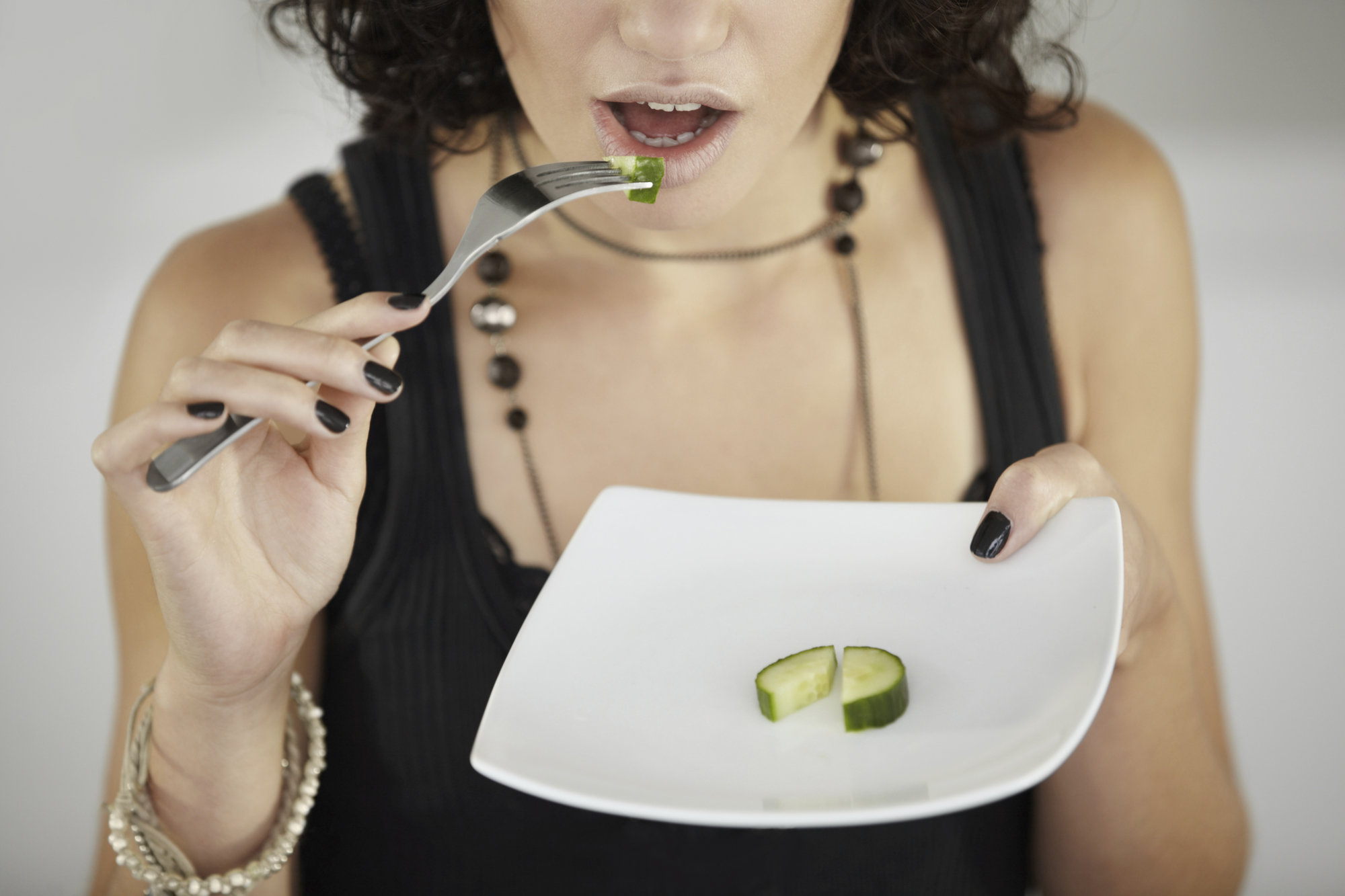Eating 'clean' can really leave a mark on your wellbeing.
"Orthorexia Nervosa" — which literally means "fixation on righteous eating" — is a condition not formally recognized by the DSM, though it's widely regarded by experts as an eating disorder. What might start out as an innocuous attempt to eat healthier can quickly become an obsession with eating "pure" and "clean" foods.
This can, in turn, severely limit the number of calories and nutrients a person is taking in daily. It can also destroy a person's social life, as they often remove themselves from settings where "unclean" temptations are served.

Because orthorexia isn't officially recognized as an ED like anorexia or bulimia, statistics on who — and how many — suffer from it are scarce. We do know that it can be fatal, and that many who struggle do so without even knowing.
Revelist spoke to Sondra Kronberg — a registered dietician and founder/executive director of the Eating Disorder Treatment Collaborative — about how "healthy" eating habits can become a dangerous obsession.

"Eating disorders are about what’s going on in your head, and how that translates to behaviors and patterns that could be mentally and medically compromising," Kronberg said.
Like people who suffer from anorexia, bulimia, or binge eating disorder, people are more likely to develop orthorexia if they have preexisting mental health conditions like anxiety, depression, or other EDs.
"Perfectionism, rigidity, competitiveness, anxiety, depression are all predisposing factors for developing an eating disorder in general," Kronberg said. "When one exhibits those personality traits or genetic predispositions and is in an environment where "clean eating" has special value, they could develop [orthorexia]."

The "red flags" associated with orthorexia are not always obvious.
Unlike anorexia or other EDs, the "drive" for orthorexia isn't always "thinness," Kronberg explained.
"With orthorexia, the process is revolving around 'purity” and wholeness,' she said. "It looks more like: 'I can’t eat that food, because it doesn’t come from Alaska and it was on the train too long, and it might have some tentacles in it.'
"The [other] eating disorders are more about weight."
The "clean eating" obsession becomes a problem when it interferes with life, and self-esteem.
"In the case of orthorexia, there is an ongoing restriction — they way food [is] delivered, raised, procured — and so there will become less and less acceptable mechanisms for food, and less and less social mechanisms," Kronberg told Revelist.
Orthorexia is particularly tricky, because it can be difficult to diagnose, and therefore, treat.
Because the DSM doesn't officially consider it an eating disorder, so many health professionals are never trained on how to spot it. That said, those knowledgeable about orthorexia feels the disordered behavior deserves medical attention.
"An eating disorder is the degree to which food, body weight, exercise interfere with the quality of your life, your ability to be spontaneous, ultimately your aliveness, potentially your health and ultimately it can be fatal," she said.

And our culture only encourages the behavior.
The idea of moralizing food (veggies "good," dessert, "bad") is nothing new. But the rise of blogs dedicated to "clean eating" tips and diets — which are ubiquitous on Pinterest — can cause the reader to internalize negative feelings about themselves if they're not following a certain regiment.
To re-work an old platitude: If you "are what you eat," and you think you're eating "bad" foods, does that make you a bad person?
"We don’t see a lot of crystal clear orthorexia, although the cultural message is creating a larger population of people with the potential for orthorexia," Kronberg said.
In other words, orthorexia not only moralizes certain foods, but those who consume it.
There's nothing wrong with choosing nutritional foods to fuel your body. But to ascribe "good" and "badness" to foods is anything but healthy.
You are not what you eat, whether that's a salad or a doughnut. You're just you.




